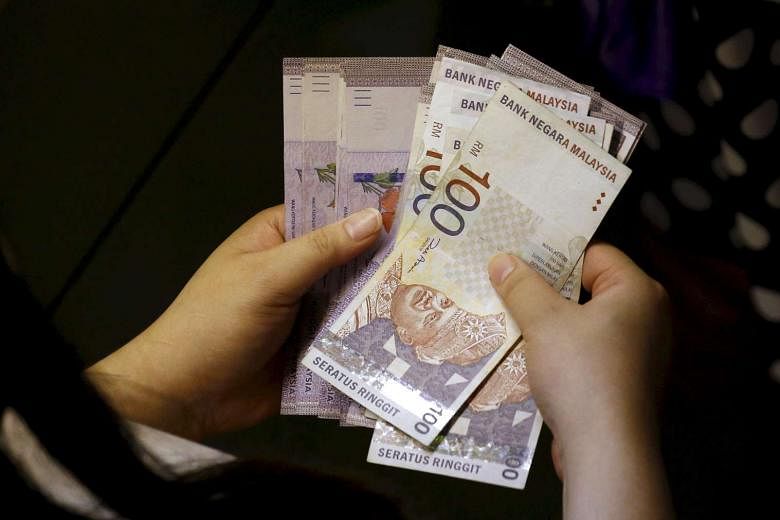KUALA LUMPUR (BLOOMBERG) - Malaysia's ringgit fell to a one-week low on Monday (Oct 19) ahead of Friday's budget as investors focus on what measures the government will take to shore up the economy amid a collapse in commodities and slowing global growth.
The 2016 budget will be "one of the most difficult," according to a report in the New Straits Times on Monday, citing Prime Minister Najib Razak. The government's commitment to reduce a fiscal deficit that's plagued the country since 1998 may be complicated by a drop in Brent crude, which has more than halved since its peak in mid-2014. The prime minister may also be looking to bolster his support base amid a political scandal over funds transferred into his personal accounts, which an official investigation found were donations.
"The expectations are a bit high about whether there's a macro policy mix to help support the economy," said Saktiandi Supaat, head of foreign-exchange research at Malayan Banking Bhd. in Singapore. "There's a need to support the economy and that may have an impact on the budget deficit."
The ringgit added to last week's 1.1 per cent drop, falling 0.6 per cent to 4.2035 per US dollar as of 10:39 am in Kuala Lumpur, according to prices from local banks compiled by Bloomberg. It earlier declined to 4.2192, the lowest level since Oct 9.
Against the Singapore dollar, the ringgit fell to 3,0431 as of 11:06 am from its Friday's close of 3.0222.
PM Najib is seeking to trim the fiscal shortfall to 3.2 per cent of gross domestic product this year from 3.5 per cent in 2014. Malaysia is Asia's only major net oil exporter and is also the world's second-biggest producer of palm oil, which despite recovering some ground from a 2015 low in August is still down 6 per cent from this year's peak in September. The government derives about 22 per cent of its income from energy-related sources.
The Bloomberg Commodity Index has dropped 15 per cent from this year's high in May as growth in China, the world's second- biggest economy, slows. A report on Monday brightened the outlook somewhat as its gross domestic product increased 6.9 per cent in the third quarter from a year earlier, beating the median estimate in a Bloomberg survey for a 6.8 per cent gain. That was still the weakest expansion since the first three months of 2009.
Malaysia's US$327 billion economy posted the slowest pace of growth in almost two years in the second quarter and the current-account surplus shrank to RM7.6 billion from RM10 billion in the previous three months.

